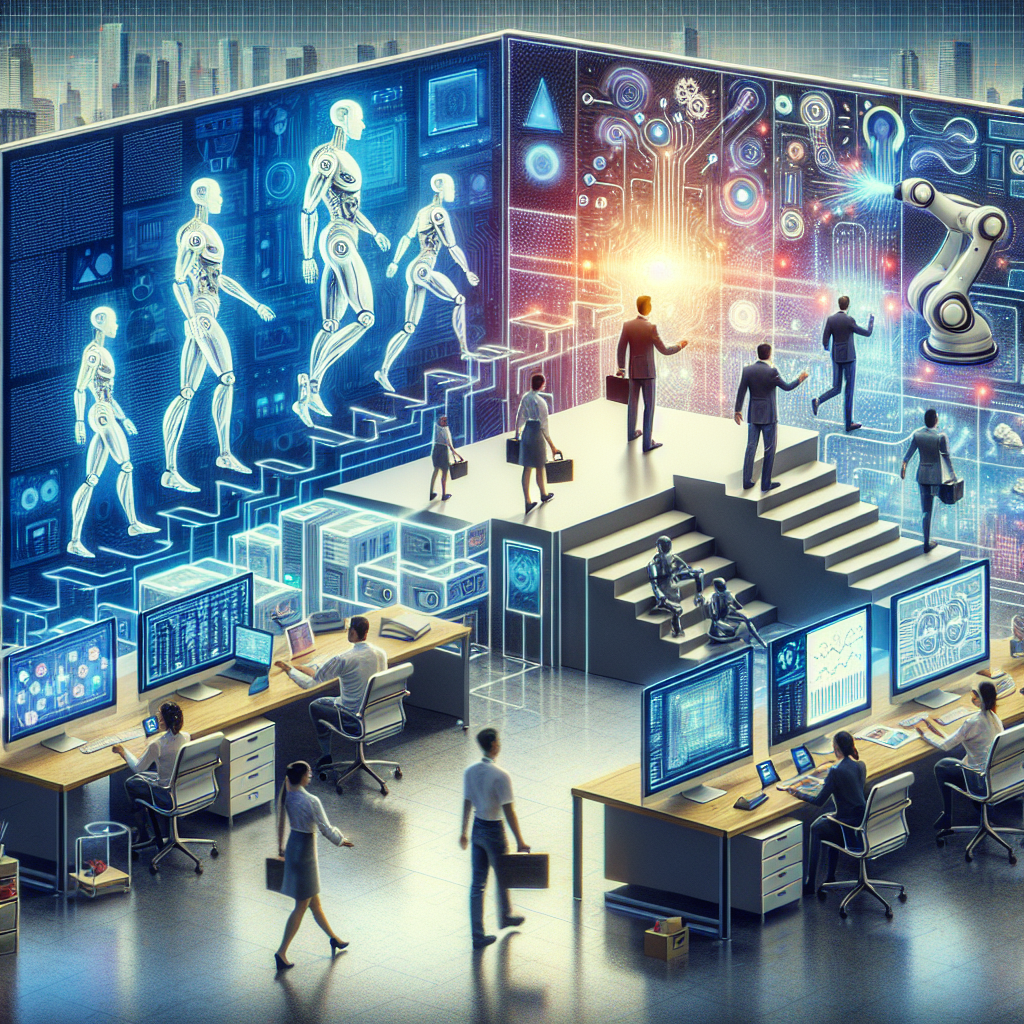The Future of Work: How AGI Will Impact Jobs and the Workforce
The rapid advancement of technology has transformed the way we work, communicate, and live. Artificial General Intelligence (AGI) is the next frontier in technology, with the potential to revolutionize the workforce and disrupt traditional job roles. AGI refers to machines that possess human-like intelligence and cognitive abilities, enabling them to perform a wide range of tasks that were previously exclusive to humans.
As AGI continues to evolve, it is crucial to understand how it will impact jobs and the workforce. In this article, we will explore the potential implications of AGI on various industries and job roles, as well as discuss the challenges and opportunities that come with this technological advancement.
The Rise of AGI
AGI represents a significant leap forward in artificial intelligence, as it aims to mimic human cognitive functions such as reasoning, problem-solving, and learning. Unlike narrow AI, which is designed for specific tasks, AGI has the capacity to understand and perform a wide range of tasks without human intervention.
The development of AGI is driven by advancements in machine learning, neural networks, and deep learning algorithms. These technologies enable machines to process vast amounts of data, recognize patterns, and make decisions based on complex information. As a result, AGI has the potential to automate a wide range of tasks across different industries, leading to increased efficiency and productivity.
Impact on Jobs and the Workforce
The advent of AGI is expected to have a profound impact on jobs and the workforce. While automation has already displaced many low-skilled jobs, AGI has the potential to replace a broader range of tasks, including those that require higher levels of cognitive abilities. As a result, some job roles may become obsolete, while new roles that require human creativity, emotional intelligence, and problem-solving skills may emerge.
In industries such as healthcare, finance, and manufacturing, AGI has the potential to streamline processes, improve accuracy, and reduce costs. For example, AGI-powered systems can assist doctors in diagnosing diseases, help financial analysts in predicting market trends, and optimize production processes in factories. However, as machines take on more tasks, there is a concern that human workers may be displaced or marginalized in the workforce.
Challenges and Opportunities
The widespread adoption of AGI poses several challenges for businesses, policymakers, and workers. One of the main challenges is the potential loss of jobs due to automation. According to a report by the McKinsey Global Institute, up to 800 million jobs could be displaced by automation by 2030, with the most vulnerable sectors being manufacturing, transportation, and retail.
Another challenge is the ethical implications of AGI, such as the impact on privacy, security, and accountability. As machines become more autonomous and make decisions independently, there is a need to address issues related to bias, discrimination, and transparency in AI systems. Additionally, there are concerns about the concentration of power and wealth in the hands of a few tech companies that develop AGI.
Despite these challenges, AGI also presents opportunities for businesses and workers. For businesses, AGI can drive innovation, improve customer experiences, and create new revenue streams. By harnessing the power of AGI, companies can gain a competitive edge in the market and stay ahead of the curve in a rapidly changing business environment.
For workers, AGI offers the potential to enhance job satisfaction, increase productivity, and foster creativity. While some job roles may be automated, new roles that require human skills such as empathy, communication, and critical thinking are likely to emerge. By upskilling and reskilling their workforce, businesses can ensure that their employees are equipped to thrive in the age of AGI.
FAQs
Q: Will AGI replace all human jobs?
A: While AGI has the potential to automate a wide range of tasks, it is unlikely to replace all human jobs. Certain roles that require human creativity, emotional intelligence, and problem-solving skills are less likely to be automated by machines.
Q: How can businesses prepare for the impact of AGI on the workforce?
A: Businesses can prepare for the impact of AGI by investing in training and upskilling programs for their employees, fostering a culture of innovation and creativity, and reimagining job roles to leverage the strengths of both humans and machines.
Q: What are the ethical considerations of AGI?
A: Ethical considerations of AGI include issues related to privacy, security, bias, discrimination, and accountability. It is important for businesses and policymakers to address these concerns to ensure that AI systems are developed and used responsibly.
Q: How can workers adapt to the rise of AGI?
A: Workers can adapt to the rise of AGI by developing skills that are less likely to be automated, such as creativity, empathy, and critical thinking. By continuously learning and upskilling, workers can stay relevant in a rapidly evolving workforce.
In conclusion, the advent of AGI represents a significant milestone in the evolution of technology, with the potential to transform the way we work and live. While AGI presents challenges for businesses, policymakers, and workers, it also offers opportunities for innovation, growth, and collaboration. By understanding the implications of AGI and proactively addressing its impact on jobs and the workforce, we can navigate the future of work with confidence and resilience.

